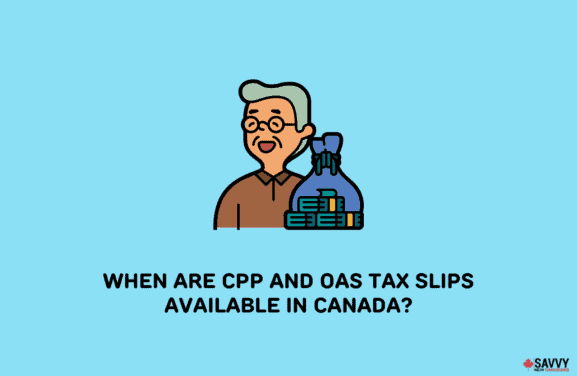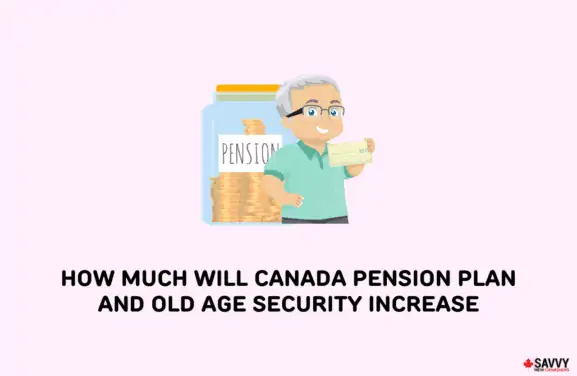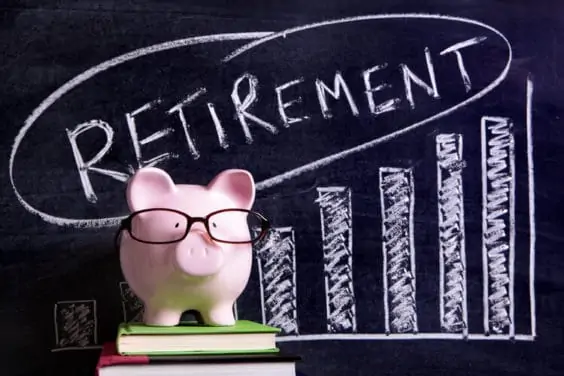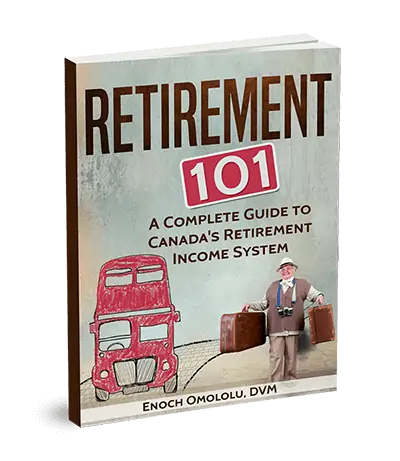There are several federal and provincial programs and benefits that complement other sources of income seniors have in retirement.
There is no easy answer when it comes to how much one will need to retire comfortably. This is because individuals have to consider factors peculiar to them in addition to broader considerations.
In general, the consensus is that you should have around 70% of your pre-retirement income to ensure you can pay for typical retirement needs.
Other popular rules of thumb for calculating your retirement income needs include the 4% withdrawal rate, income multiples, and so on. You can read more about these assumptions here.
How much money do seniors get in Canada? Read on to find out.
Federal Programs and Retirement Income Benefits for Seniors
Following the initial introduction of The Annuities Act in 1908, Canada has come a long way when it comes to retirement benefits.
On the federal level, we now have the Old Age Security (OAS) pension (plus Guaranteed Income Supplement – GIS) and the Canada Pension Plan (CPP)/Quebec Pension Plan (QPP).
The OAS and CPP are often referred to as Pillar 1 and Pillar 2 of Canada’s retirement income system, respectively. In light of a senior’s total income in retirement, the OAS and CPP are expected to cover approximately 40% of their retirement income.
Let’s look at what these benefits offer:
1. Old Age Security (OAS)
OAS was first introduced in 1927. It is a monthly benefit that is paid to seniors who are 65 years of age or older and who are either citizens or legal residents of Canada.
There is no employment history requirement for the OAS, and you do not need to make any contributions. Applicants must have lived in Canada for at least 10 years after the age of 18.
The amount of OAS benefits you qualify for is prorated based on how long you have lived in Canada as an adult. To qualify for the maximum OAS amount, you should have resided in Canada for 40 years or more (after age 18).
If, for example, you have lived in Canada for 20 years before turning 65, you will receive half of the full OAS pension (i.e. 20/40 x OAS pension). The current maximum monthly OAS benefit is $713.34 (age 65 to 74) and $784.67 (age 75 and older).
OAS benefit amounts are reviewed quarterly in January, April, July, and December to ensure they keep up with the inflation rate. Seniors can choose to delay when they start receiving OAS (for up to 5 years) to qualify for a higher amount.
Related:
2. Guaranteed Income Supplement (GIS)
The GIS is a part of the OAS program and is a top-up payment available to low-income seniors.
To qualify for the GIS, you must already be receiving OAS, reside in Canada, and your annual income must be below the income threshold set by the government. If you have a spouse or common-law partner, your combined income determines your eligibility.
GIS payments are not taxed, and benefits are revised every quarter. For the current GIS payment amounts, check out this table here.

3. Allowance and Allowance for the Survivor
Allowance: This is a monthly benefit under the OAS program that is paid to low-income seniors who are between 60 and 65 years of age and whose spouse or common-law partner is a recipient of the OAS and GIS. An Allowance payment is a stop-gap benefit until you turn 65 and become eligible for OAS.
Your income and that of your spouse are considered in calculating how much Allowance benefit you qualify for. The current maximum Allowance benefit is $1,354.69 per month.
Allowance for the Survivor: This benefit is similar to the Allowance. It is a monthly supplemental benefit paid to low-income seniors who are aged between 60 and 64 years and whose spouse/partner has died.
The current maximum Allowance for the Survivor amount is $1,614.89. Payments stop when you reach 65 years of age.
Related: Understanding GIS, Allowance, and Allowance for the Survivor
4. Canada Pension Plan (CPP/QPP)
The CPP was introduced in 1966. Unlike the OAS, the CPP is a contributory program that individuals contribute to during their working years based on contribution rates set by the government every year.
You can start claiming CPP benefits from age 60 (reduced benefits) or wait till age 65 to receive a full CPP pension. Seniors can also choose to delay when they take CPP benefits for up to 5 years, at which time they receive a higher monthly CPP benefit.
To qualify for CPP benefits, you must have worked in Canada and made at least one CPP contribution.
The amount of CPP you will receive in retirement is based on how much you and your employer contributed to the plan, the number of years you contributed, and the age at which you start collecting CPP benefits.
CPP benefit amounts are revised annually to account for inflation. The current maximum monthly CPP benefit is $1,364.60.
Related: Everything You Need to Know about the CPP
In addition to the CPP retirement pension, there are a few other benefits available to seniors under the CPP…
5. CPP Post-Retirement Benefits (PRB)
If, as a senior who is receiving the CPP retirement pension, you decide to continue working and contributing to the CPP program, you will receive an increase in your monthly CPP pension.
Essentially, when you contribute to the CPP between ages 60 and 70 and receive the CPP, you will earn a post-retirement benefit. You cannot make any further CPP contributions after age 70.
6. CPP Survivor Benefits
This is a monthly benefit that is paid to the spouse or partner of a CPP contributor who has died. The amount you receive depends on how much was contributed to the plan, your age, and the other benefits you receive.
The current maximum monthly CPP survivor’s pension is $739.31 (under age 65) and $818.76 (over 65 years).
7. CPP Death Benefit
This is a one-time payment to the estate of a CPP contributor after they die. The maximum CPP death benefit payable is $2,500.
Related: CPP and OAS Survivor Benefits
8. International Pension Benefits
Seniors who lived or worked in another country may be able to receive their pension benefits in Canada if there is a social security agreement between that country and Canada.
If you are unsure how this process works, contact Service Canada for more information.
For provincial benefits available to seniors in retirement, check out this post.
Investing: Investing doesn’t have to be expensive. For low fees (as low as 0.40%) and no-hassle investing, try Justwealth today. After funding your account, you’ll receive a cash bonus.
Related Posts:






I wonder how much CPP I will be eligible for when I’m old enough. I know I’m a ways from that still but I’ve had many years of self-employment income so I wonder what a monthly amount could look like.
@Curious Frugal: I assume you would have been making double the CPP payments on self-employed income? One good thing about the CPP is that it’s well managed and is funded for the next 40 years or so based on recent assessments.
Is there a supplement for seniors isolating re:covid19, was told application on line but have found nothing.
I wanted to know if I can apply to for my late husbands unclaimed old age security payments?
@Verna: For questions about your Old Age Security pension, it is best to contact Service Canada’s phone number at 1-800-255-4786. Cheers.
I am getting my pention but it is only $37.44 so I have to live with my daughter and I would like to know is there anyway I could be aloud other funds to help me out do I have to wait for the cpp or is there a way I could get these funds I am 60 and have permanent disability I have week heart gout bad knees bad back and I need 13 meds a month for all my health problems so I am going no ware but down hill from here so can you please tell me if there is anyway to increase my funds hope you get this asap thanks
You said: “I am getting my pension” But failed to mention the type of pension. At 60 years of age, you can start collecting CPP but at a reduced rate. You should most definitely be eligible for some form of disability benefits such as ODSP(Ontario Disability Support Program), or some equivalent if you’re not a resident of Ontario. Contact Service Canada for details. Good luck!
With all of the current wage subsidies being offered to poor Canadians who find themselves in untenable life and family situations. Not to sound greedy but what about being a 64 year year old citizen with heart disease and advanced MS. My monthly CPP Disability pension remains at the fixed amount of just over $1100 a month. I am dependent on stores which deliver which presents additional costs and fees. My blood work in involves the same fee for service as a tech must come in my home to collect the blood samples. Traveling outside of my home involves a specialized taxi for my wheelchair (again, increased costs.) I have NO immune system. I caught the influenza (H1N1 I believe.}I was totally helpless and unable to care for myself for almost 6 weeks. To hire inhome nursing assistance costs more than my cpp disability pension. What about the 1000,000’s of thousands of citizens live on less and less.
I heard seniors were to get an extra $500.00s because of the covid. Part was for CPP and other was for OAS. $200 on one and $300.00 on the other. Can’t remember which dept. was doing the giving but does not matter. I will take the $500. from whoever wants to give it…..
Do you know anything about this?????
Thanks.
y price
@Yvonne: Yes, seniors will receive up to $500 on top of their regular OAS/GIS payments. It’s not yet clear when the payments will be made.
Recently Ontario Govt started Dental Care Program for Seniors and after applying for the Card
I got one. About a month back I had some dental pain in the upper jaw. I applied and was requested to make an appoint ment with Health & Smile Clinic Finchgate, Brampton. In the meantime due to severeness of pain I had to go to a private dental clinic my two teeth were removed. I need further treatment and was informed to go to Peep Health, where they can arrange for further treatment. They informed me that my name will listed in que and they will call me. So far there has been no call.
Is their any financial help for low income seniors with this covid this winter?
There is a one time $600. Seniors benefit that expired September 30 but application was extended
Where do I find application information
My husband and I are researching moving to Canada. I am disabled and receive Social Security Disability here in the US. Does Canada have an agreement with the US or will my disability amount change or be lowered? I receive $1268 a month.
I’m 58 yrs old, medical issues can’t work anymore, but my husband works here in the hospital.
But would have to find a job there if we move to Canada. We need lower rent . We can’t afford to live here anymore. We need senior housing, not assisted living, just cheaper housing so we can afford to live .
@Anne: I’m not sure how moving would affect your disability payments and amounts. In a general sense, Canada and the U.S. do have social security and tax agreements, however, you probably need an in-depth assessment by a financial/tax advisor to see what makes sense for your situation. I would assume you have done your research with regards to housing, however, it is worth noting that housing can be extremely expensive in Canada compared to a lot of places in the U.S.
I am a retired senior Canadian citizen. Before the pandemic, I worked as a part time seasonal job. I received the CERB twice in the amount of $500. The establishment I am working is still not allowed to open business. Am I still illegible for other benefit offered by the government? How? Where to apply? Thank you. God bless!
Why are seniors 75 and older getting 500.00 in August plus a increase in oas in 2022 and because I am 66 I don’t get either one I’m sorry but I feel like I don’t matter my husband has health issues so we are on a tight budget I myself don’t think this is fair
I am with Eleanor i would like to know about seniors 75 and older getting 500.00 in August plus a increase in oas in 2022 and me and my husband are 73 and soon to be 73 we are all in the same predicament with higher costs in retirement and COVID.Please respond!!!!! Linda Fleury
@Linda: Here’s what the government said in their release:
To give more than three million seniors greater financial security and put more money in their pockets as they advance in their retirement, Budget 2021 proposes to increase the Old Age Security (OAS) pension by 10 per cent for seniors 75 and over as of July 2022. It also proposes a one-time payment of $500 in August 2021 to OAS pensioners who will be 75 or over as of June 30, 2022.
https://pm.gc.ca/en/news/news-releases/2021/05/03/safe-and-dignified-retirement-canadian-seniors
@Enoch Omololu, I am doing some research for ICAN Seniors Association and I have a few questions on government funding for seniors, like; For Seniors from different countries (for Ex: China, Japan) wanting to set up applications for when they retire? When is the deadline in 2021 and 2022? How long does the process take after filling out the Application? When they are searching to apply for this where do they go and what’s the best way to set it up?
-Liam McCann-
@Liam: There’s no deadline for the OAS and CPP. There’s however, an age threshold.
For the OAS, the earliest they can apply for the benefit is 1 month past their 64th birthday. Applications can be completed online via a My Service Canada Account (MSCA) or by using a paper application (Form ISP-3550).
For the CPP, the applicant must be at least 60 years old and must have made at least one CPP contribution. Applications for the CPP can also be completed using MSCA or the paper application (Form ISP-1000).
There are more details here:
https://www.canada.ca/en/services/benefits/publicpensions/cpp/old-age-security/apply.html
https://www.canada.ca/en/services/benefits/publicpensions/cpp/cpp-benefit/apply.html
https://www.canada.ca/en/employment-social-development/services/my-account.html
Thank you very much for your efforts on behalf of us Seniors….very much appreciated. Some interesting info here. I would like to know about any plans there are for BC Seniors for dental care. I have Green Shield but the basic only covers cleaning for approx 4 times a year
@Jean: Thanks for stopping by. I did a quick search and only found this one for folks who receive disability assistance, etc. https://www2.gov.bc.ca/gov/content/family-social-supports/income-assistance/on-assistance/supplements/dental
If I am collecting CPP and OAS but I am still working part-time, can I still apply for the Canada Worker’s Benefit?
@Wendy: As per the government’s website, the eligibility requirements for the CWB are that you: earn working income, “are a resident of Canada throughout the year, are 19 years of age or older on December 31, or you live with your spouse or common-law partner or your child”. As far as I am aware, if you are earning employment income that is taxable, you can apply for it.
We are 71 and 73 years old and struggling – both need dental work and having trouble eating to say the least. We did not work jobs in our lifetime that gave us any pension on retirement so we only have what the government gives us which we have worked all our lives for. I don’t understand why the government thinks it is cheaper for someone 75 to live than us. I know someone 75 and he has no health issues and alot less costs than we do and he is going to get the benefit? This is just not right. Please respond and tell me someone is trying to do something about this – plus a dental plan will not work if you are forced to a certain dentist when you are used to your dentist and the procedures.
Sincerely
Margo
Me and my parents came to Canada 5 months ago as permanent residents. I am a grade 12 student. So I can’t work full-time. My father is 68 years old and my mother is 56 years old. They are trying to get a job. But it’s very hard for them getting a job at this age overcoming language barrier. So, right now, our family income is zero. We can hardly pay our rental by the money that is on the bank account. Is there any way for them to get any pension or other advantages, especially for my father, as he is already a senior citizen?
@Tridib: Pension benefits like the OAS and CPP have either ‘number of years of residency or contribution requirements’ for eligibility. I think a good start would be to look at whatever provincial benefits are available, including income assistance.
You can also check whether any of these apply, depending on your situation: https://www.savvynewcanadians.com/overview-of-government-retirement-benefits-for-seniors-in-canada/
When I retire in Ontario I will have $0 pension other than CPP. what would my max CPP be and all other benefits/income. Ive been working in Canada Paying taxes for 50 years when I retire as I started at Zehrs at age 15. Cost of living is about $4,000 per month per couple in Canada and that’s about the bare minimum to live. After Taxes thats only about $3000
@Jerry: I assume you will qualify for both OAS and CPP. The maximum OAS amount is the same for everyone, while CPP is based on how much you contributed and for how long. It’s hard to estimate this without knowing your full financial situation. If it helps, the average being paid out in 2023 is around $800 monthly.
why are not people under 65 not allowed the extra benefits